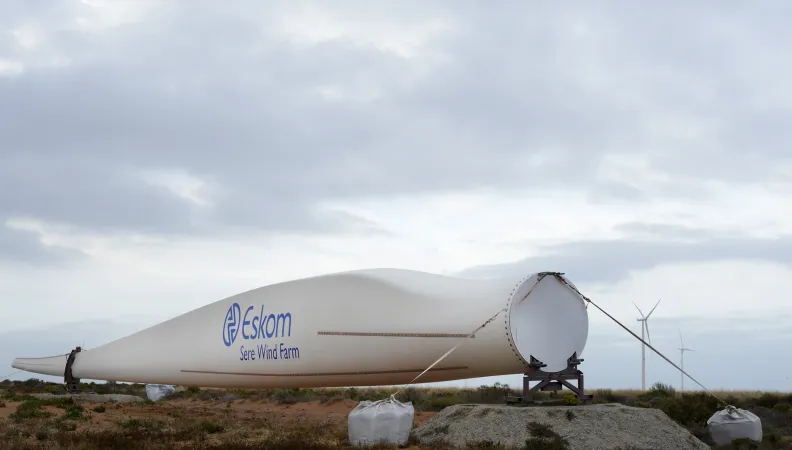Share the page
WInd energy generaton to promote low-carbon growth
Project


-
Project start date
-
-
Project end date
-
-
Project duration
-
20 ans
-
AFD financing amount
-
€ 100000000
-
Country and region
-
Location
-
Vredendal
-
Type of financing
-
Partners
-
World Bank
-
Beneficiaries
-
ESKOM
A project that aims to increase the share of energies from renewable sources in the national energy mix, ultimately reducing CO2 emissions
Context
South Africa is the largest energy producer on the African continent. ESKOM, the national energy operator, produces 95% of the country's electricity. However, over 90% of ESKOM’s energy production is provided by coal-fired plants, making South Africa one of the largest greenhouse gas (GHG) emitters in the world. The country accounts for 25% of GHG emissions produced by sub-Saharan Africa.
In 2003, ESKOM committed to increasing the share of energy from renewable sources in the national energy mix. In 2009, the country announced its goal to reduce GHG emission by 52% by 2025. In this context, several projects are currently underway, with a strong focus on wind energy, which will make up over a third of the country's new renewable energy production capabilities by 2030.
South Africa has moderate natural resources for wind, with the western coast of the Cape region being the most exposed. In 2010, there were no wind farms connected to the national energy grid in the country.
Description
Since 2002, ESKOM has built a pilot wind farm at Klipheuwel, near Cape Town. This pilot project tested the reliability of the various technologies, analyzed the environmental impacts and identified the operating constraints of wind farms in South Africa.
ESKOM has learned from this pilot project and decided to deploy infrastructure on a larger scale with the implementation of a 100 MW wind farm. A site has since been selected by ESKOM, located 250 km north of Cape Town, near the town of Vredendal. Here, ESKOM intends to install a proven wind technology, with expected power production is around 280 GWh per year.
With a EUR 100 million loan, AFD is partly financing the construction of this wind farm, the total cost being EUR 120 million. The wind farm project will increase the security of energy supply in the west coast of Cape Town, diversify sources of energy production and replace fossil fuel with renewable energy, thus limiting CO2 emissions. This project marks the beginning of a long-term partnership with ESKOM to support renewable energy projects (wind, solar, etc.) and energy efficiency.
Impacts
- Increase in the share of energy from renewable sources in the national energy mix;
- 250,000 tons of CO2 per year of CO2 emission averted;
- 240 jobs created, with emphasis on promoting local, black-owned businesses.


